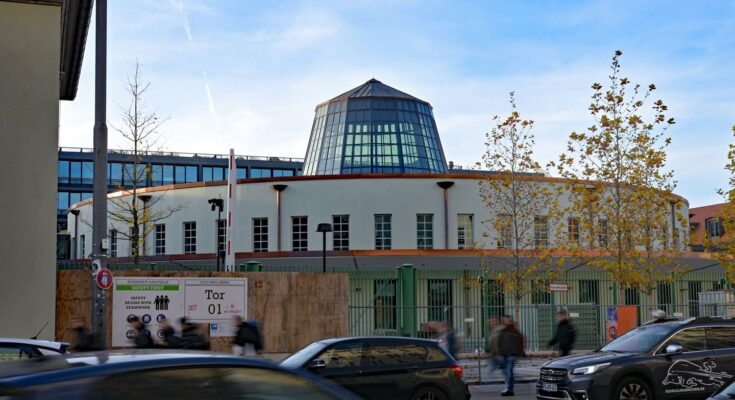The tech giant’s plans
Google invested 5.5 billion euros in Germany
Google is planning its biggest investment program for Germany to date: new data centers, site expansion and a focus on climate-friendly energy by 2030.
Google will invest 5.5 billion euros in Germany over the next four years. The internet giant’s biggest investment program for Germany to date includes building a new data center in the town of Dietzenbach in the Hesse district, said Google Germany boss Philipp Justus in Berlin. The existing data center in neighboring Hanau will be expanded. In addition, Google’s locations in Munich, Frankfurt and Berlin will be expanded.
Vice-Chancellor Lars Klingbeil (SPD) praised Google’s plans for 2026 to 2029 as “a real future investment in innovation, artificial intelligence, climate-neutral transformation and future jobs in Germany”. “This is what we need right now.” Google said the investment program is “expected to secure around 9,000 jobs in Germany annually through 2029.”
“Leading location for data centers in Europe”
Digital Minister Karsten Wildberger (CDU) said: “We want to make Germany a leading data center location in Europe.” The investment announced by Google shows how attractive Germany is for digital infrastructure.
Google’s business, as well as other technology companies such as Microsoft, Amazon, and local providers such as Schwarz Group, Ionos, and Deutsche Telekom, are currently driven by the great need for cloud services. In addition, the increasing use of artificial intelligence applications requires very large additional computing capacity.
Just last week, Telekom and American AI chip developer Nvidia announced that they wanted to jointly invest in a data center in Munich. The amount is around one billion euros. According to industry association Bitkom, data center operators in Germany will invest around 12 billion euros this year.
Booming in the Rhine-Main region
The Rhine-Main region in particular benefits from this trend in Germany. The large Internet exchange DE-CIX is located in the greater Frankfurt area. Data center operators can transfer large amounts of data without delay through giant data exchange points.
For the new factory in Dietzenbach, Hesse, Google has developed a concept for using and reusing excess heat. Waste heat will be channeled to the Energiebedarf Offenbach AG (EVO) district heating network and used by residents. Once operational, the data center will be able to supply hot water and heating to more than 2,000 local households.
Look for clean electricity
Google has officially announced a goal to sustainably minimize the impact on climate and the environment in its cloud services. To do this, Google needs electricity to come from renewable sources around the clock and every day of the year to minimize its carbon footprint. In this context, Google announced the expansion of its round-the-clock partnership for CO₂-free energy with the German company Engie, established in 2021, until 2030 to make an increased contribution to the energy transition and stability of the electric grid in Germany.
Engie is one of the world’s largest providers of renewable energy, energy services and technical infrastructure. In Germany, Engie plans, builds and operates wind, photovoltaic and hydroelectric power plants, battery storage power plants and pump power plants. Through several green energy initiatives, Google’s German operations are expected to be powered by 85 percent or more CO₂-free energy by 2026, the company announced.
Historic post office building modernized
In addition to new infrastructure, Google continues to invest in its office presence throughout Germany. This especially impacts locations in Munich, where Google employs more than 1,000 developers. Following the restoration and modernization of the former parcel delivery office in Munich’s Maxvorstadt, a “state-of-the-art development center with 30,000 square meters of office space” for up to 1,500 Google employees will be created in the building complex. Upon completion at the end of 2026, the project at the historic Arnulfpost will also create a public area accessible to all Munich residents.
dpa



